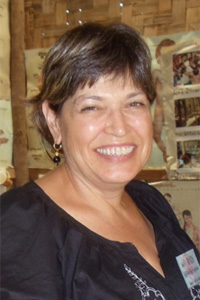Rosemarie Hunter

Ph.D, LCSW
Dr. Rosemarie Hunter (Rosey) has been a social worker and community organizer for 30 years and with the University of Utah since, 1995. She currently serves as the Special Assistant to the President for University-Community Partnerships at the University of Utah and Director of University Neighborhood Partners (UNP).
Rosey has social work practice experience in community organization and development, youth and families, school social work, and international social work. Her teaching and research is focused on community capacity building and grass-roots leadership within the context of migration, resettlement and integration. Rosey has forged strong relationships with residents, community organizations, small businesses, financial institutions, schools and local government. Within an action scholar framework, she has developed both local and international social work projects and conducted field studies in Mexico, Botswana, Ghana, and Thailand.
Rosey has received several awards including the 2010-2011 Lowell Bennion Community Service Center Public Service Professorship Award, the Mary Shields Mc Phee Award for Excellence in Community Service from the College of Social Work and the Ariel S. Baliff Award for Academic and Professional Excellence from the Department of Social Work at Brigham Young University.
Statement - I am honored to say I am alum, a parent of alum, an employee and a donor to the University of Utah. I feel fortunate to be part of an engaged learning community that values local knowledge and strives to work in partnership with community members to effect social change. UNP partnerships work in three primary ways: 1) leveraging existing resources to achieve more with fewer resources; 2) creating a process of communication and a culture of capacity-building among institutions and individuals that normally do not interact with one another; and 3) creating a shared space to develop specific joint actions focused on structural and social change.
UNP's central objectives are: to bring together the resources of higher education and the community in mutually-beneficial relationships that work to change the divisions of income and educational attainment along the lines of structural racism and institutional barriers, which inhibit many west side residents from full participation in city, state, and national communities. One of the most compelling aspects of campus-community partnerships is the co-creation of knowledge--the unique ability for these networks to create and exchange information, always challenging and changing who is teacher and who is student?
